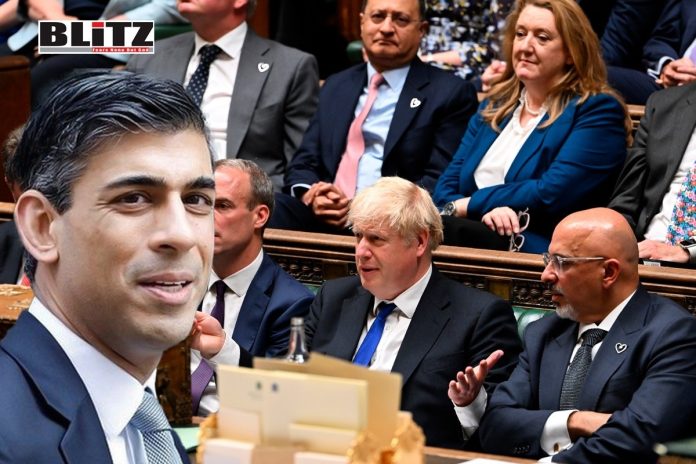Within the intricate fabric of British politics, a tangible aura of disillusionment lingers, eclipsing the customary enthusiasm that accompanies shifts in power. Long celebrated for its robust democratic engagement, the nation now stands at a pivotal juncture, contending with a deep-seated schism between its predominant political factions and their constituencies. This pervasive disillusionment underscores a fundamental discord within the political landscape, challenging the traditional narrative of democratic fervor that has long defined British politics.
Recent opinion polls present a somber tableau: notwithstanding Labour’s apparent ascendancy, the aggregate backing for the primary political entities dwells at historic nadirs, with scarcely two-thirds of the electorate professing allegiance. This disillusioned sentiment transcends numerical metrics, permeating society with a profound apathy toward political stewardship. Both Conservative and Labour figures encounter substantial disfavor, as Rishi Sunak and Keir Starmer garner lukewarm receptions from voters, indicative of a broader disillusionment with established leadership.
The prevailing discontent defies simplistic analysis, tracing its origins to the tumultuous terrain of the 1980s. Margaret Thatcher’s sweeping economic reforms catalyzed a profound transformation within the Conservative Party, propelling it into the vanguard of deregulated capitalism. Concurrently, Labour underwent a metamorphosis, embracing multiculturalism and social liberalism as defining tenets of its ideology. These seismic shifts in party identities laid the groundwork for modern Britain, fostering a society marked by greater acceptance of diversity while contending with the complexities stemming from market-driven ideologies.
Nevertheless, studies indicate a significant disjunction between the aims of party leadership and the preferences of their core constituencies. Conservative voters, contrary to expectations, exhibit unexpectedly leftist leanings on economic matters, hinting at a nuanced discontent with the legacy of Thatcherism. Similarly, Labour loyalists uphold conservative social values, suggesting a nostalgic longing for a bygone era characterized by societal stability and order. This incongruity underscores the complexity of contemporary political allegiances, where traditional party lines blur amidst evolving societal norms and shifting ideological landscapes.
In response to these divergent yearnings, both Labour and the Conservatives have attempted to navigate the shifting political terrain. Yet, their efforts have fallen short of addressing the fundamental grievances of their supporters. While Starmer advocates for an economy that works for working people, his pragmatic approach lacks the transformative zeal necessary for substantive change. Conversely, Sunak’s Tories flounder amidst blustering rhetoric and a lack of coherent policies, failing to resonate with an electorate hungry for meaningful reform.
The proliferation of minor parties and the fragmentation of the political landscape serve to deepen the existing disconnect, as disillusioned voters increasingly explore alternatives beyond the confines of the traditional duopoly. Events like Brexit and the Scottish independence referendum have fractured longstanding allegiances, exacerbating a climate of flux and instability within the political sphere.
Amidst this landscape of political disillusionment, the concept of “vibes” has emerged as a guiding principle for voters, supplanting substantive policy platforms in their decision-making processes. However, this reliance on intuition proves to be ill-suited for navigating the intricate challenges facing modern Britain. Instead, there is an urgent need for a return to evidence-based governance, where policies are formulated and implemented based on rigorous analysis rather than fleeting impressions or sentiments.
In the midst of this tumult, the imperative to reconnect with estranged voters looms large for both Labour and the Conservatives. However, genuine reconciliation transcends mere rhetoric; it necessitates a profound reassessment of party priorities and a revitalized dedication to addressing the grievances of the electorate.
Ultimately, the trajectory of British politics hinges upon a delicate interplay between party leaders and their constituents. While politicians bear the responsibility of articulating a compelling vision for the nation, citizens too must engage in critical discourse, holding their representatives accountable and demanding concrete solutions to pressing issues. In this symbiotic relationship, both parties must heed the calls for reform and genuine engagement, forging a path towards a more responsive and inclusive political landscape.
As Britain traverses the choppy seas of political transition, the way ahead appears murky and uncertain. Yet, amidst this uncertainty, one fact stands resolute: the schism between the main parties and their supporters serves as a poignant indicator of deeper societal divisions that demand attention. If Britain is to fulfill its promise in the 21st century, it must confront these underlying fissures head-on. Only through a concerted effort to bridge this gap can the nation embark on a transformative journey toward a more inclusive and representative democracy, one that reflects the diverse voices and aspirations of its populace.




